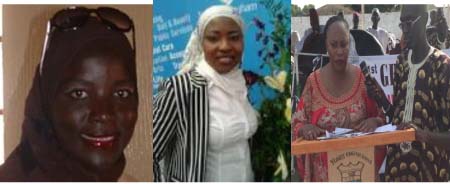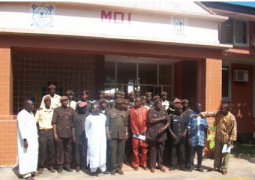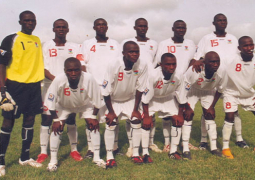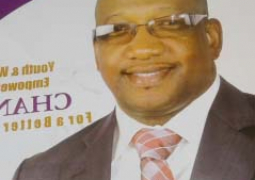
Being a woman is not curse but a blessing as such women and girls are equally important as men in our society.
Over the years we have seen women occupying important positions in the world, particularly in The Gambia.
We have seen women presidents in few countries in Africa and even beyond. In The Gambia we have a living example in the person of the Vice President Dr Aja Isatou Njie-Saidy.
Women are playing their quota in nation building in almost all the development sectors of our country.
One important sector that people tend to forget when talking about women and girls in their professional careers is journalism.
Journalism, a noble profession just like any other profession is a career for some women and girls.
Despite the challenges facing the profession, there are still some women and girls that are venturing into it and earning a living with the use of the pen.
Journalism field in The Gambia is dominated by men. People always say that in this digital world in which we are living today what a man can do, a woman can do better.
I believe in this saying; we all believe and support this saying and that being the case, do we ask ourselves this question: what is the plight of the female journalist in their various media houses?
One may wonder why such a question but the editors-in-chief, sub-editors, news editors, journalists and the entire media fraternity knows what this question entails.
Kindly take a walk to the media houses, be it the print or electronic media, you will meet or see few women and girls working there. Is it because women and girls don’t like to become journalists or they cannot become journalists or are afraid to become journalists?.
The young women and girls in the journalism field have answers to this question.
Female journalists in the electronic media are only reduced to entertainers because the editors think that we are only meant for that because we have a nice voice that people can listen to.
When you come to the print media, most of the time you hardly see female journalists. It is not because there are no female journalists, but because they are not empowered in the media houses as men are.
Some of them have to depend on their male counterparts if not they will not have a story. Some of them will bring their stories but it will never get published and when that happens, they will become frustrated and leave the profession in the hands of men.
Some of the female journalists that go to the court house to look for stories, after sitting in the court house for hours waiting for a particular case to come up, after paying huge amount of fare, the men being our editors end up dropping their stories because they are female.
It is really sad that you met up with female journalist in the field from other media houses but they do not even know where to start. They could have done better if only they have been empowered with the necessary tools of journalism.
The male editors can all bear me witness that they all start from scratch; they all are what they are today because they are empowered by those they met there. Only few media houses have female editors, the rest are dominated by men.
When it comes to field work, any work within the Greater Banjul Area and surroundings is meant for the female journalists in some media houses.
When it comes to travelling in the interior part of the country and even beyond the country, it is meant for the male journalists.
When are we going to break away from this, when are we going to prove to our editors that what men can do women can do better.
We can travel too; we can hold cameras and place it on our shoulders just like men do. We can write good articles, we can be editors-in-chief of any media houses; just challenge us and we will never fail you.
This is the digital world, we are talking about empowerment of women and girls across every sector that can develop our country and journalism is one field that is so dear to the hearts of women and girls.
Over the past years, we have seen prominent female journalists who can do better than men in the field. Sarata Jabbi, the former she-she-she columnist of The Point newspaper, is one female journalist that we look up to as our role model.
Sarrata is one female journalist that stands up to the challenge female reporters face in the field and makes name for herself.
Once a journalist, always a journalist; Hon. Fatoumatta Jahumpa Ceesay is a veteran journalist who once worked for Daily Observer newspaper and despite being a woman she worked very hard and FJC will agree with me that journalism did contribute greatly in her career as a prominent woman in this country and role model for young ladies.
Sainabou Kujabi was The Point newspaper’s female sport editor, one that I am always proud of because sport is one area in journalism that is also male-dominated but Sainabou could do better in that field more than his male counterparts.
Who said females cannot be editors in media houses when we the few are doing better than the men but still the plight of the female journalist in the media houses needs to be changed so that there can be more females that will have the courage to come out and join the field.
The She-she-she column also recognizes the efforts of some media houses in their quest to empower female journalists. Some of the female journalists have their school fees paid by their media houses, which is commendable but there is still room for more improvement.
Read Other Articles In Article (Archive)

Senior Immigration staff receive leadership and managerial skills
Oct 16, 2012, 11:28 AM
Cyber crime
Jan 25, 2012, 11:23 AM



